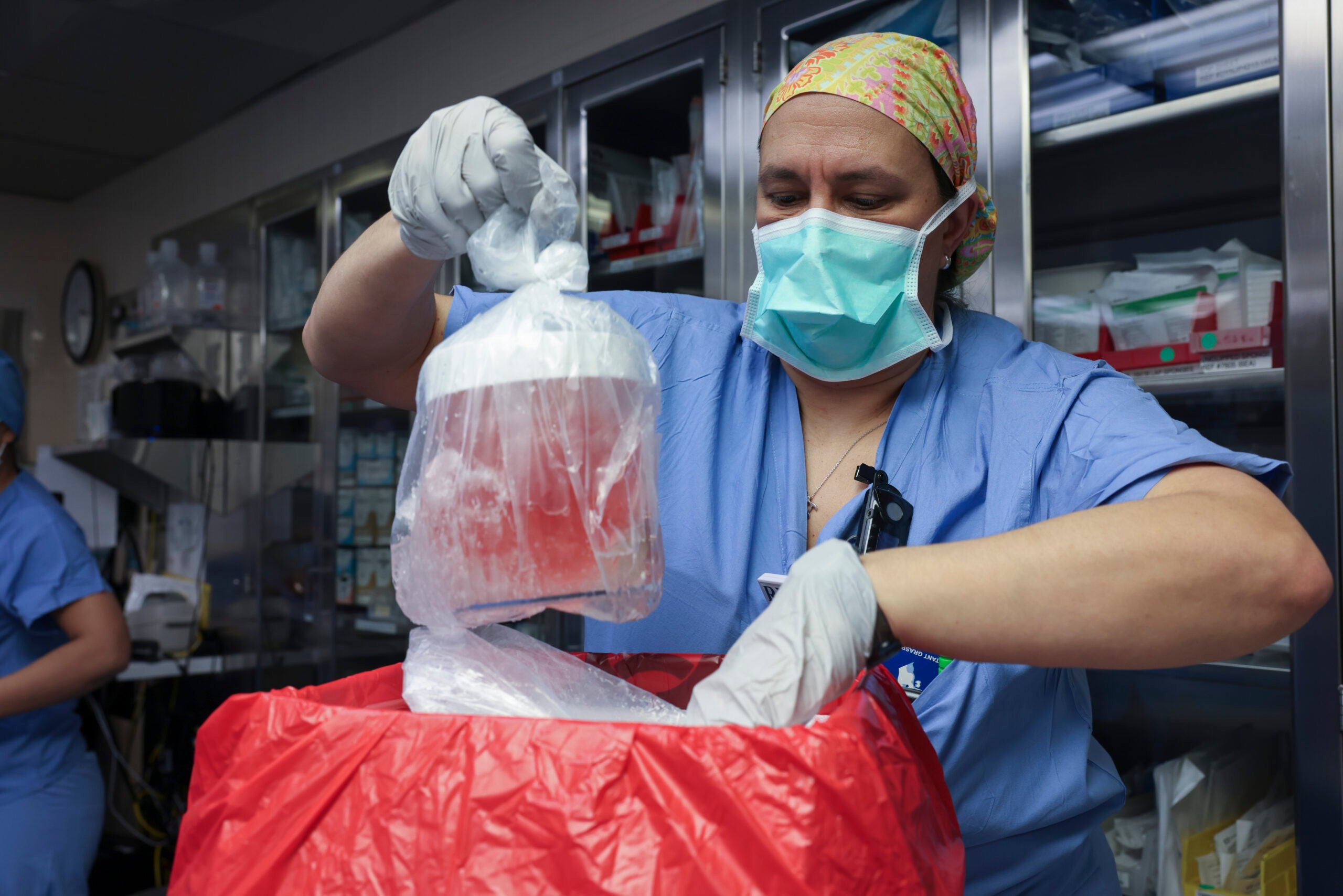A national doctors advocacy organization is asking federal officials to investigate the use of live pigs for training at the Medical College of Wisconsin.
The Physicians Committee for Responsible Medicine sent a letter to the U.S. Department of Agriculture on Thursday requesting an investigation. The group, which advocates against the use of live animals in training and research and promotes a vegan diet, claims the Milwaukee college’s use of live animals is a violation of the federal Animal Welfare Act.
The group argues in a letter to the USDA that MCW “cannot justify” using animals because alternative methods for training “are widely available.”
Stay informed on the latest news
Sign up for WPR’s email newsletter.
In a statement, a spokesperson for the Medical College of Wisconsin said the college has “a responsibility to provide our resident physicians with training experience that prepares them with the knowledge and skills necessary to provide the highest quality patient care.”
“…Animals are only used for physician resident training when alternative methods are inadequate, do not yet exist, or are too dangerous for human participants,” said the spokesperson. “A highly trained team of specialist veterinarians and technicians is always present to provide skilled and compassionate care.”
The spokesperson said MCW is “firmly committed” to the humane and ethical use of animals. The college has an Institutional Animal Care and Use Committee that “ensures MCW remains compliant with all federal regulations and policies.”
Dr. John Pippin, director of academic affairs for the Physicians Committee for Responsible Medicine, claimed the majority of residency programs in the U.S. do not find it necessary to use live animals for training.
He said the group’s survey of medical schools and residency programs found that more than three-quarters of the programs in the U.S. and Canada do not use live animals and instead rely on tools like simulators and human cadavers.
“You can’t ignore that. They’re not all wrong,” Pippin said, pointing out that their list of program that do not use live animals includes Harvard, Cleveland Clinic and Johns Hopkins.
Pippin argued training using live animals is not reliable in part because of the anatomical differences from humans. As an example, he pointed out that a pig has a corkscrew-shaped gastrointestinal tract and much thicker skin than humans.
“These are anatomical differences, which then have to be corrected once the residents or the trainees go into clinical training and are supervised by their physician leaders,” he said. “That’s a very powerful argument to not train them incorrectly on pigs, but to start with something that works better.”
Wisconsin Public Radio, © Copyright 2025, Board of Regents of the University of Wisconsin System and Wisconsin Educational Communications Board.





